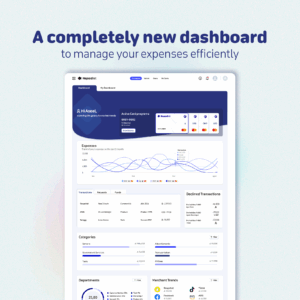Hiring full-time employees for startups can be challenging due to the financial constraints and uncertainties associated with early-stage businesses. Freelancers offer a viable alternative as they allow startups to tap into expertise without the commitment of full-time employment. This flexibility not only reduces the financial burden but also enables startups to access a diverse range of skills on-demand, facilitating quick adaptation to evolving business needs.

But hiring freelancers is not without its own set of challenges, especially communication and ensuring everyone is always on the same page. Additionally, in some cases, it is harder to maintain the consistency of work quality of projects if more than one freelancer works on them. Nonetheless, with careful planning and effective project management, these challenges can often be overcome, making freelancers a valuable resource for startups.
Wondering how to make your collaborations with freelancers a success? We have compiled the best 10 tips here for you.
10 Tips is All You Need
1.Clearly Define Your Needs:
Start by clearly defining the specific tasks or projects you need freelancers to work on. Be as detailed as possible in your project descriptions to ensure freelancers understand the scope of work.
2.Use Reputable Platforms:
Consider using reputable freelance platforms like Upwork, Freelancer, Toptal, Fiverr, or specialized platforms like Behance (for design) and GitHub (for developers). These platforms often have a large pool of skilled freelancers.
3.Check Freelancer Profiles & references:
Review freelancers’ profiles carefully. Look for relevant experience, reviews from previous clients, and portfolios of their work. Pay attention to their skill sets and ratings. Ask for references from past clients or employers. Contacting previous clients can provide valuable insights into the freelancer’s reliability and work quality.
4.Clearly Define Budget and Terms:
Determine your budget for the project and communicate it upfront. Be transparent about payment terms, such as hourly rates, fixed project fees, or milestone-based payments.
5.Screen and Interview Candidates:
If possible, conduct interviews or discussions with potential freelancers. This allows you to assess their communication skills, expertise, and whether they are a good fit for your startup.
6.Start with a Small Project:
If you’re unsure about a freelancer’s suitability, consider starting with a small project as a trial. This allows you to gauge their performance before committing to larger projects.
7.Use Contracts:
Always use written contracts that outline project details, deliverables, timelines, payment terms, and confidentiality clauses. Contracts protect both parties and provide a clear legal framework.
8.Provide Necessary Resources:
Ensure freelancers have access to the tools, software, and information they need to complete their tasks effectively. This includes any necessary training or onboarding.
9.Protect Intellectual Property:
Include intellectual property clauses in your contracts to specify who owns the rights to the work produced. This is especially important for startups developing proprietary products or services.
10.Pay Promptly:
Adhere to the agreed-upon payment schedule and make payments promptly. Late payments can affect the flow of deliverables, create tension and over the long run hurt your business’s reputation amongst vendors, contractors and freelancers.
The Takeaway
Take your time in the early stage of finding and partnering with freelancers. Remember that freelancers are independent professionals, so treating them with respect and fairness is essential for building successful working relationships. By following these tips, you can leverage the flexibility and expertise of freelancers to help your startup thrive, even when it’s difficult to hire full-time employees





